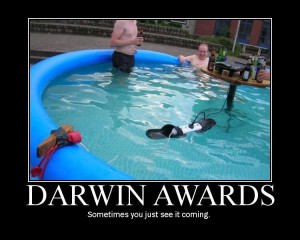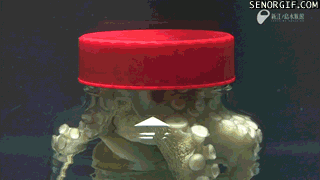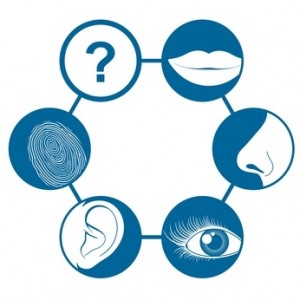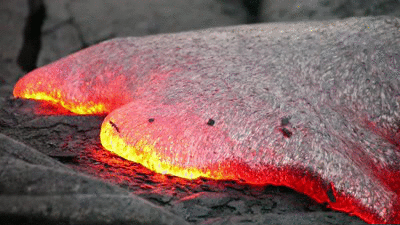When writing fantastic adventures through space, it’s inevitable in most cases that you’re going to have them step out of that ship and encounter something not of this world. They could find the ruins of an ancient civilization. They could find an unknown spacecraft not of any design they’ve ever seen. And, of course, they could just run into some…
Yes, aliens, they’re everywhere in space no matter what you may think about the Fermi Paradox. It’s inevitable that there’s something out there, somewhere, which is at least as advanced as we are. Sure, cosmic filters and all that are a possibility, but they’re a possibility born out of insecurity and assumption of facts without evidence. So don’t worry sci-fi writers, even if we haven’t made contact with anything yet we’re more than sure to make contact with something in the distant future.
But when you get around to making these alien lifeforms there tends to be a problem in how exactly we’re supposed to bring them to life. Sci-fi is full of tropes on just what exactly an alien creature is supposed to look like and almost all of them stem from something we’d find down here on Earth. More than one novel has described their aliens as being “insect-like”, quite a few rubber faces have been glued to actors over the years, and one time there was an Outer Limits where the advanced alien intelligence was a talking Raptor.
There’s just one problem: science says that anything that evolved on an alien world has likely taken a dramatically different turn than anything we’ve seen before. So what exactly should we expect those aliens to look like? How do you go about creating something that isn’t supposed to be like anything you’ve seen before? Well, at that point you’re going to have to make some assumptions…
Extraterrestrial Guess Work
Normally it’s a bad thing to make assumptions when dealing with space and aliens. We assumed there would be life on Mars because we saw some things that reminded us of canals. We assumed Venus was a lush jungle planet because… why not? And, of course, we assume today we’re alone in the universe just because we’re getting tired of searching after only a few decades.
But, as with anything, there are some safe assumptions that can be made when you’re dealing with aliens. We have to assume they have some means of getting from point A to point B. We have to assume they have an ability to be aware of their environment. We have to assume that they can manipulate that environment if they’re supposed to be building a civilization even partially comparable to ours. And, of course, we have to assume they think.
Though, I know, given our experience here on Earth, it’s hard to imagine that’s a requirement.
Still, for now, let’s focus on something they’re almost guaranteed to have…
Limbs
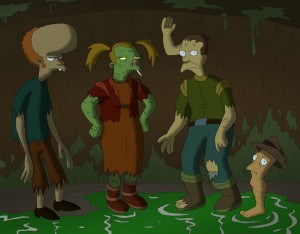
Safe Assumptions
It’s safe to assume that the aliens in question are incredibly likely to have some sort of limbs. There are a few reasons for this and all of them point to the idea that, even if there is a lifeform out there that is fairly free floating and formless, the aliens that manage to build a civilization are going to have something we’d consider a limb.
The first reason for the assumption is that moving around without some solid moving extension is pretty difficult. There are creatures who may be evolved from a liquid that could do it by little jets a bit like how the squid gets around, but their ability to move is going to be hindered greatly by a reliance on the pressure, consistency, and direction of the fluid they’re in. In other words, they wouldn’t be able to adapt very well to get around once they’ve been removed from optimal conditions. However, that isn’t to say that it wouldn’t be possible to have creatures like that be common, or that they couldn’t become a sentient lifeform – it’s just not very likely they’d become the dominant lifeform on their planet.
Alternatively, they could slither around like a snake using the entirety of their body to get where they need to go. This is a bit more adaptable than the liquid jet method and can cover more terrain without too much difficulty. The idea that a serpent creature could be a dominant lifeform is entirely plausible. However, while they would be dominant, they would still require something else to be able to become the kind of creature to build what we would consider civilization.
The ability to grasp something and manipulate it with relative ease is a necessity to build anything. If you’re dealing with a technologically advanced civilization, that civilization is going to have some method of grasping what they’re working on without having to use their entire body to do it. This means there is very likely to be multiple opposable limbs in some arrangement to be able to manipulate what they need to. The more complicated the arrangement of limbs happen to be, the more likely they are to be able to do tasks requiring dexterity. For instance, we’ve found quite often that an octopus can open things we didn’t think they could, primarily because of their versatile limbs.
So it’s safe to assume that the complexity and number of limbs is related to how effective a creature is at being able to manipulate their environment to their needs. Some may doubt this due to the fact we only have two arms and two legs but have managed to build the society we have. But when you consider digits like fingers and toes, the human body has 24 limbs with 14 of those being fully opposable. The fact of the matter is, when comparing our limb number and complexity to the limb number and complexity of any other animal on the planet, we tend to come out ahead.
Not So Safe Assumptions
However, this doesn’t mean aliens are going to have the same number and complexity that we do, or that they will be in the same arrangement. This isn’t to say just that they wouldn’t likely have two arms and two legs, that’s obvious and doesn’t need to be covered. But what I mean is that an arm doesn’t necessarily have to be an arm and a leg doesn’t necessarily have to be a leg. We often just mentally place hands on the upper body and feet on the lower body, but when you look at our simian cousins you find that… we’re kind of the freaks of the family.
And, while we would consider most digits to be attached to the end of a branching limb, that’s not necessarily true. The serpent example from earlier, for instance, could still have limbs sprouting from one of the two ends of the serpentine body. This would allow them to move around effectively but still be able to grasp things when necessary. And if that sounds like I just suggested there could be hands where your mouth would be… yeah, pretty much.
Senses
Safe Assumptions
Clearly, if they’re going to be able to get around and manipulate the environment that they’re dealing with, they’re going to need to be able to make out that environment. There are a variety of ways this is done, the human body having 5 primary senses and many more secondary senses that sometimes even get suggested as being bumped up to the big leagues where we teach them in elementary school.
We need to be able to see what’s ahead of us. We need to make out the sounds of things around us and take cues from those sounds to adjust. We need to smell things and give us an idea of whether something is dangerous, toxic, beneficial, or even potentially find something we’ve lost. We need to be able to taste to get an idea of what we’re ingesting (with some help from the nose). And, of course, we need to be able to touch to coordinate our movements, know when something is safe or dangerous, and warn us of when we’ve been injured (or are about to be).
So it makes sense that the creatures that you would encounter would have similar requirements. They would need to know where they’re going, they would need to be able to differentiate helpful from harmful, and they would need to be able to detect information not readily apparent in their environment. This would lead many to assume that they would all naturally have the same senses we do… however…
Not So Safe Assumptions
Senses are something that we take for granted rather quickly when there’s actually a pretty good chance that the thing that would be most different between us and an alien species is just how we see the world. We evolved the senses we have because of our environment, but even in the process of doing that we don’t have the same set of senses every other animal does. Snakes detect heat with their tongues, animals with whiskers are able to detect motion through vibration, and many animals can see colors we have no idea exist. The point is, while it is entirely possible they would have the same senses, it’s not a guarantee.
One example to try to frame this for you would be if we were to take the old common belief that people who lose their vision have all of their other senses compensate. This is partially true and there have been instances of people being able to adapt to get around using only sound. In fact, with the use of echolocation, it would be entirely possible for creatures to get around without any sense of sight.
However, one would then have to ask how that entity would be able to pick up the natural cues such as color or the shapes of things which do not necessarily reflect sound such as fire or thin gases. For these, other senses would have to compensate such as the ability to better read heat or be able to pick up greater information on chemicals in the air. In essence, if alien creatures were to be blind, you would have to fill in that function with another sense no matter how silly it may sound to us.
In fact, in Will Smith’s movie After Earth, while many people made fun of the fact the creatures that were hunting them could detect fear (and yes, it does sound cheesy), the act of smelling fear would not be that ridiculous for an alien lifeform.
If you had a predator from another planet without the sense of sight, it would be entirely possible that they use alternate senses to be able to make out their environment such as echolocation or pressure sensitivity. This would be enough to cover for the shapes of the environment, but not necessarily the content within those shapes. To put it another way, how would you be able to tell which shape was made of wood and which shape was just a wooden actor?
Yeah, the animal would be freaking out and their body chemistry would be changing rapidly. As strange as it would seem, it would be a viable method of differentiating things if you lacked sight (not that it stops being cheesy, given the rest of the movie).
Interaction
Safe Assumptions
This is the hard part. As I said before, how we see the world is likely to be the most different aspect of an alien civilization. That wasn’t just referring to the actual act of seeing it, it was also about how we perceive what we see. What is safe to assume is that anything that could create technology is going to be intelligent, have a grasp on mathematics and be knowledgeable in physics.
It is also likely that they will have their own culture, designs, and ideas on how things should work. These, also, will likely look nothing like our own and will be rooted heavily in how they interact with their world. For instance, if their world happens to be entirely water, it’s unlikely they’ll have a superstition revolving around earthquakes, the formation of land, or our traditional view of volcanic eruptions. They’re also more likely to build differently than we are, with more emphasis on adaptation to pressure and less on being able to resist sudden changes in forces (wind is a bastard).

We should also assume they have a method of communicating information and storing it down for each other. Oral traditions (if they speak at all) aren’t likely to spread information and maintain it long enough for a civilization to evolve over time. So it would be a given that they have some means of maintaining their information for the long term and deliver it to each other.
Not So Safe Assumptions
However, we can’t assume that we would be able to understand any of it… at all. The idea that they would naturally store information in “alien writing” is one that we can’t exactly be sure of. We can’t know that they didn’t discover storing information as energy frequencies, lights, or chemical markings. Maybe instead of a written language they write down their information by creating very exact patterns in chemicals, marking it down like a cat or a drunk frat boy.
And we can’t be sure they speak, either. It’s an old trope by now, but it is possible that they would have the ability to transmit their thoughts to each other one way or another. The chemical example from earlier, for instance, would suggest creatures capable of transmitting information to each other through changes in their personal chemistry. Much like how animals here can use pheromones to give some information to each other, with the proper evolution it would be entirely possible that information could become complex enough to transmit entire complicated thoughts. Similarly, they may communicate through subsonic sounds, light pulses, or complex body language.
And, in the end, what this means most of all is that we’re not able to assume that they would see us and recognize we’re as intelligent as they are (unless we both meet in space, flying complicated spacecraft, then it’s a given). If they were to come to this world, or we were to go to theirs, it would be entirely possible that we would be as nonsensical and bizarre to them as animals on our planet are to us. Sure, it would seem like an easy task to convince these other creatures of our intelligence: we’ve built complex structures, have an established society, have created unnatural geometric shapes, and can communicate complicated information to each other. But then you have to consider…
So do ants.
(I write novels. Likely no alien will ever read them, but that’s okay because it’s not about them. But you can! If not, at least check out my twitter.)





